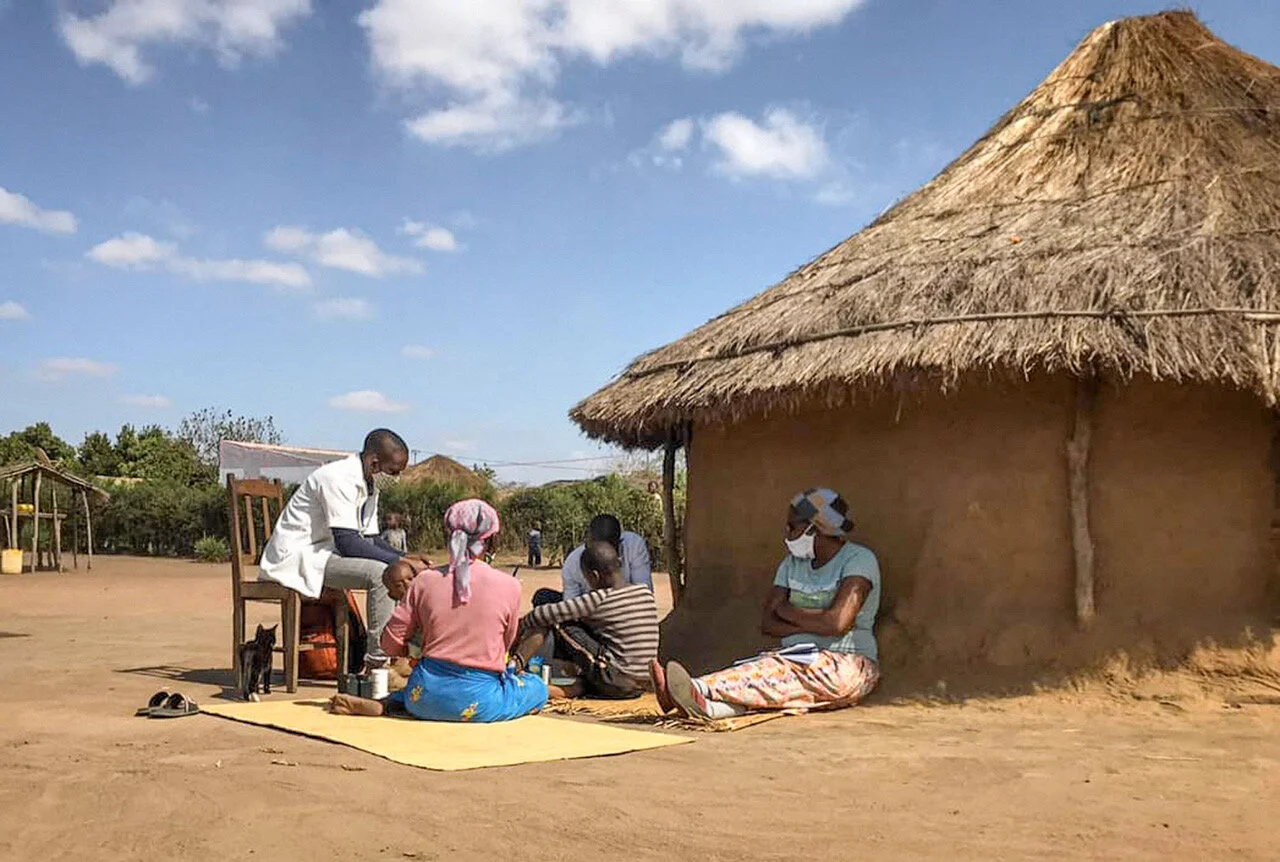Continuing to Provide the Essentials
When COVID-19 hit Africa, the vulnerability of those living in communities served by Hands at Work significantly increased. Most prominently, the pandemic exposed the lack of effective access that our communities have to basic health care services. Whilst local health offices exist, people living in the most vulnerable communities have neither the connections nor the voice to access consistent support. Frequently, when people showed up to local clinics, they were treated poorly, with a reluctance from clinics to even open health files or make any commitment to follow-up care, resulting in people being fearful to ask questions and hesitant to even seek the medical treatment that they desperately need.
One of our first tasks was bridging the gap between the government health authorities – who were making the decisions about which essential services could stay open and what people could or couldn’t do – and the communities that are off the map, where the needs amongst the poorest people are the highest.
ADVOCATING FOR HEALTH CARE
In Mozambique, Audrey Singue, the coordinator of the local Hands at Work in Chimoio, understands the struggles that people face in receiving health care. She also recognises how vital proper medical care is and its role in saving the lives of the most vulnerable. In July, Audrey and her team went to the local clinic in Chimoio to fight on behalf of the most vulnerable children, to ensure that they receive essential medical care. Hearing the deep concern for the state of our children’s health and hygiene, both now and what is anticipated to only increase in the future, the clinic sent a doctor, a nurse and a nutritionist to visit each family being served by Hands at Work in Mozambique. This effort by the Chimoio team now means the local Care Workers will be supported by health care professionals who will, together, ensure that the most vulnerable families receive the medical care that they desperately need. Though there was a level of mistrust from families towards these health authorities in initial meetings, due to their previous experience of rejection and a lack of concern from the clinic, we praise God for the healing, reconciliation and relationship building that has taken place. The clinic committed themselves to serving the families and opening a file for each one of our children, ensuring that when they come to the clinic in the future they are known by name, heard, and treated.
The need to continue and increase the influence of the Hands at Work care model in our communities is higher than ever: fighting for basic health support, feeding, and physically observing children and their families to ensure safety.
UPGRADING FACILITIES
As well as the connection with local health professionals, the pandemic has exposed a need to work with authorities to ensure our care facilities and procedures are at the highest standards and meet regulations we are likely to face on the road ahead. Hands at Work recognises that in order to withstand the pressure that Care Points will face in the future to stay open, upgrades are needed on their facilities.
Beautiful local cultural practices are easily seen throughout our communities across Africa, where local Care Workers take ownership of the Care Points in their communities like they do in their own homes, using resources that they have learned and developed to serve the most vulnerable. As we are committed to seeing local community ownership grow, we want to build into these pre-existing resources in our communities. In doing so, we must keep in careful balance the value of long-term, effective local community ownership and practices with the need to ensure safety and care for the most vulnerable which stand up to local authority regulations.
One example of this upgrading has been seen in Zimbabwe, involving the construction of simple food preparation tables in the communities of Sakubva and Chinyausunzi. These tables are simple surfaces with a sink, allowing the Care Workers to have a place to prepare food. Previously, this may have been done on their laps or on the ground. Having a sink with drainage also allows the Care Workers and the children to have a hygienic place to wash the dishes, without the water sitting on the ground in muddy conditions.
Across communities in Zambia, secure toilets have been constructed and hand-washing stations have been installed, in an effort to improve hygiene standards at our Care Points.
In the community of Oshoek in South Africa, a Life Centre building has been completed by the Care Workers, local community members and the local Hands at Work team. Having this building completed ensures that the children have a secure and clean place to eat their meal each day.
In 2020, Hands at Work has identified key priority upgrades for the communities across Africa, including food preparation and storage areas, clean toilets, kitchen shelters and benches. Projects like these will all contribute towards ensuring the overall safety, health and hygiene of the most vulnerable children across Africa.


